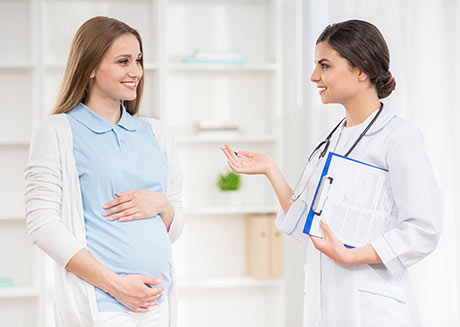When you find out you’re pregnant, immediate questions probably come to mind: What can I eat? Can I still exercise? Are my sushi days in the past? Taking care of yourself has never been more important, but it’s not hard to learn.
Here’s how to maintain a healthy pregnancy through nutrition, vitamins, good habits, and more.
Eating a nutritious diet during pregnancy is linked to good brain development and a healthy birth weight, and can reduce the risk of many birth defects.
A balanced diet will also reduce the risks of anemia, as well as other unpleasant pregnancy symptoms such as fatigue and morning sickness.
A well-balanced pregnancy diet includes:
- protein
- vitamin C
- calcium
- fruits and vegetables
- whole grains
- iron-rich foods
- adequate fat
- folic acid
- other nutrients like choline
To protect you and baby from a bacterial or parasitic infection, such as listeriosis, make sure that all milk, cheese, and juice are pasteurized.
Don’t eat meat from the deli counter or hot dogs unless they are thoroughly heated. Also avoid refrigerated smoked seafood and undercooked meat and seafood.
If you or someone in your family has had a history of allergies, speak to your doctor about other foods to avoid.
Most nutrients needed during pregnancy should come from food, but prenatal vitamin supplements play an important role to fill any gaps. It’s hard to consistently plan nutritious meals every day.
Folic acid (folate) is a B vitamin that is very important for pregnant women. Folic acid supplements taken several weeks prior to pregnancy and for the first 12 weeks of pregnancy have been found to





